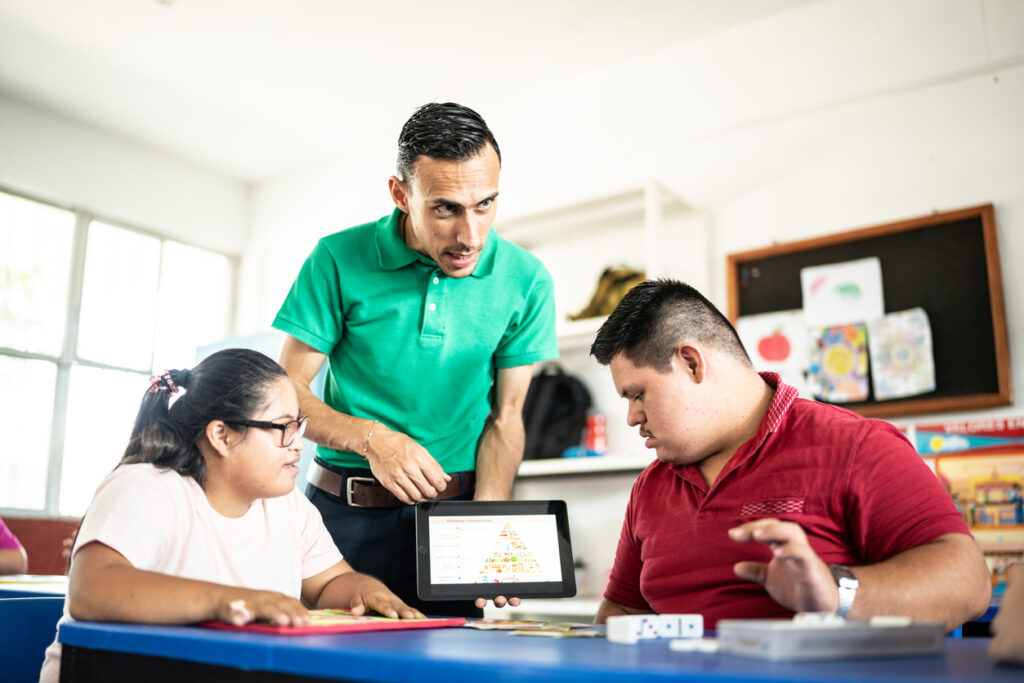Table of Contents
ABA Special Education In the realm of special education, ABA Special Education stands out as a pivotal approach in fostering academic success and overall development for students with diverse learning needs. Applied Behavior Analysis (ABA) principles are at the core of this specialized educational framework, offering structured interventions and tailored strategies to support students across various educational settings.

Understanding ABA Special Education
ABA Special Education utilizes principles derived from Applied Behavior Analysis, a scientific approach that focuses on understanding and improving behaviors that are socially significant. This methodology is highly individualized, aiming to enhance learning outcomes by systematically applying interventions based on data-driven assessments.
The Foundations of ABA
At the heart of ABA Special Education lie the foundational principles of behavior analysis, including reinforcement strategies, prompting techniques, shaping behaviors through successive approximations, and functional behavior assessments. These techniques are applied to modify behaviors and teach new skills essential for academic and social success.
Tailored Instructional Strategies
One of the key strengths of ABA Special Education is its emphasis on individualized instructional strategies. Educators analyze the specific needs and strengths of each student through detailed assessments, then design personalized learning plans that target academic goals, behavioral improvements, and skill acquisition tailored to the student’s abilities.
Data-Driven Decision Making
Central to ABA Special Education is the continuous collection and analysis of data to monitor progress and inform instructional decisions. Educators systematically track student performance, behavior patterns, and skill mastery, using this information to adjust teaching strategies, reinforce effective behaviors, and address areas needing improvement.
Positive Behavior Support
ABA Special Education places a strong emphasis on positive behavior support (PBS), which involves creating environments that promote desirable behaviors while minimizing or preventing challenging behaviors. Strategies may include setting clear expectations, using visual supports, implementing reinforcement schedules, and teaching self-management skills to foster independence and positive outcomes.
Functional Communication Training
Communication deficits are common among students with special needs, and ABA Special Education addresses these challenges through techniques such as functional communication training (FCT). This approach teaches alternative communication methods, such as picture exchange systems or augmentative and alternative communication (AAC) devices, to enhance expressive and receptive language skills.
Social Skills Development
Social skills are crucial for academic and lifelong success, and ABA Special Education integrates systematic instruction to develop these skills. Educators use strategies like role-playing, peer modeling, and structured social activities to teach students appropriate social behaviors, turn-taking, sharing, and understanding social cues in various contexts.
Transdisciplinary Collaboration
Successful ABA Special Education programs emphasize collaboration among educators, therapists, parents, and other professionals involved in the student’s care. This transdisciplinary approach ensures that interventions are coordinated across settings, reinforcing skills learned at school within the home and community environments.
Assistive Technology Integration
The integration of assistive technology enhances learning opportunities for students in ABA Special Education. Devices such as tablets with specialized apps, speech-to-text software, adaptive learning platforms, and sensory tools cater to diverse learning needs, promoting engagement, independence, and access to curriculum content.
Family Involvement and Support
Family involvement is instrumental in ABA Special Education, as parents and caregivers play a vital role in reinforcing skills learned at school, implementing behavior management strategies, and advocating for their child’s educational needs. Parent training programs, workshops, and regular communication with educators ensure a collaborative approach to supporting the student’s development.
Celebrating Progress and Achievements
Progress in ABA Special Education is celebrated as milestones in academic achievement, behavioral improvements, and social skills development. Each success—whether mastering a new concept, demonstrating appropriate behaviors, or achieving personal goals—is recognized and reinforced, fostering a sense of accomplishment and motivation for continued growth.
Looking Ahead: Advancements and Challenges
As ABA Special Education evolves, ongoing research, technological advancements, and innovative practices will shape the future of this field. Challenges such as funding constraints, access to trained professionals, and maintaining fidelity to ABA principles will require ongoing attention to ensure high-quality educational experiences for all students.
ABA Special Education
ABA Special Education plays a crucial role in promoting academic achievement, behavioral growth, and overall development for students with special needs. By applying evidence-based strategies rooted in Applied Behavior Analysis, educators tailor interventions to meet individualized goals, foster independence, and empower students to succeed in academic settings and beyond. As we continue to explore new approaches and expand educational opportunities, ABA Special Education remains a cornerstone in enhancing the educational outcomes and quality of life for students with diverse learning needs.





More Stories
How Special Needs Advocates Empower Families
Why Special Needs Preschools Are Essential for Growth
Top Special Education Resources to Enhance Instruction